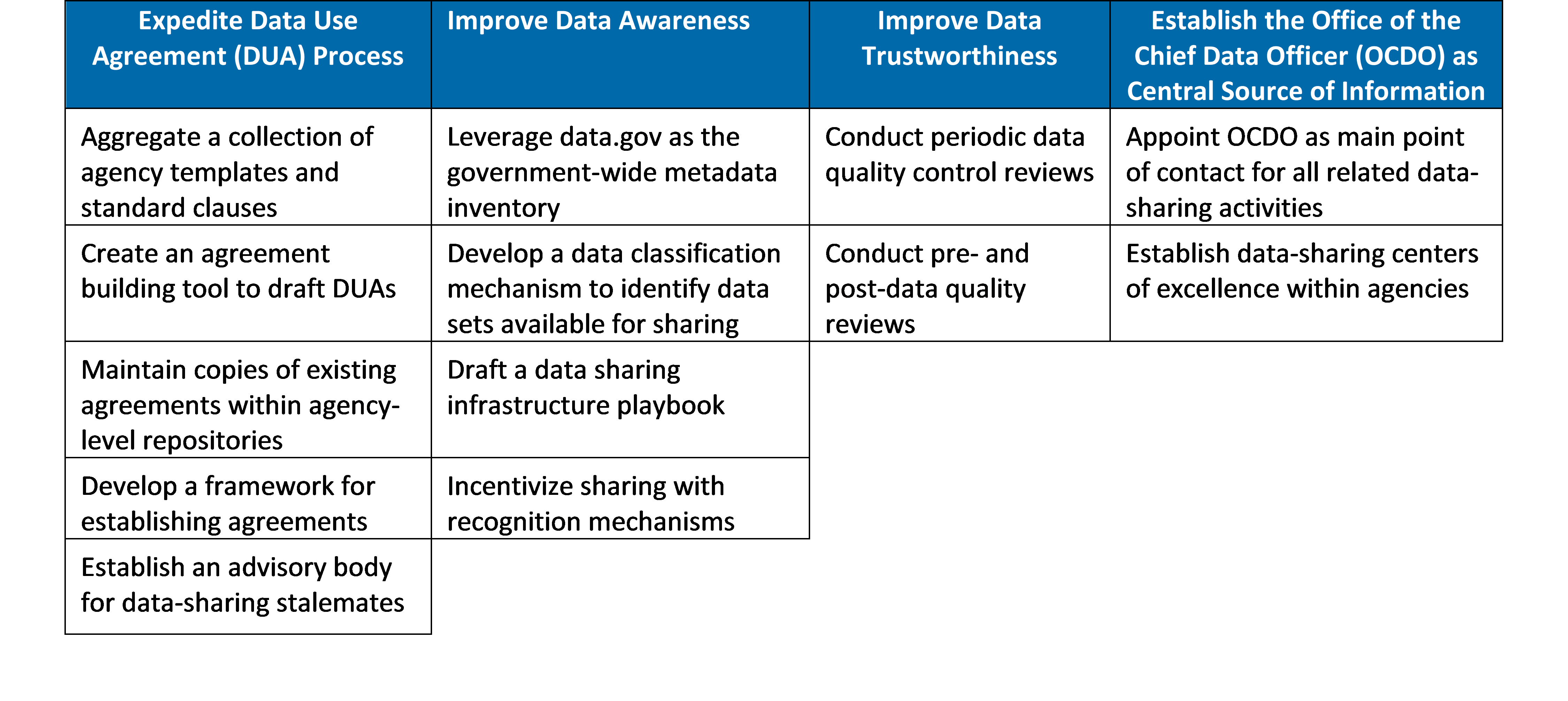Findings and Recommendations on Federal Data-Sharing Practices
Published: April 26, 2022
Federal Market AnalysisBig DataGovernment PerformanceInformation Technology
The Data Sharing Working Group under the CDO Council recently published a report on federal data-sharing needs and challenges, providing recommendations to improve data access and sharing among agencies.
As one of its goals, the two-year old Chief Data Officer (CDO) Council seeks to understand and leverage data-sharing among all federal agencies. The push for increased data-sharing is often correlated with efficient federal government services delivery, as well as sound evidence-based activities and policymaking. While technology is key in data access capabilities, it is typically the culture, people and antiquated processes that hinder the success of many data-sharing efforts.
As such, the Data Sharing Working Group (DSWG) under the CDO Council studied and provided recommendations in a recently published document, which provides federal data-sharing needs and challenges across agencies. To compile the findings of the document, the group focused on creating a list of data-sharing purposes and use cases at federal agencies; documenting challenges; and identifying solutions and recommended actions to make sharing easier with stronger privacy protections.
Specifically, the group observed 23 use cases that spanned federal-to-federal, state-to-federal, federal-to-international, and federal-to-private, and found that nearly all cases, “reported improved mission delivery, faster processing times, reduction of costs, better research outcomes, greater program visibility, and other positive results.” Additionally, the report identifies four themes that contributed to the success of the observed use cases:
- It is important to leverage common, mature, and user-friendly data-sharing tools and technologies
- All parties seeking to share data must treat each other as equals and communicate consistently
- There are creative ways to share data while still adhering to legal or regulatory restrictions i.e., working with Offices of General Counsel (OGC) to develop and iterate on data-sharing frameworks to serve unique circumstances
- Data models, data catalogs, flow diagrams, and other visuals are essential to reducing complexity.
Driving its overall recommendations for federal data-sharing, the DSWG found a strong need for a standardized and accelerated data agreement process, as current agreements are prepared one at a time and become caught in a web of legal, policy and oversight complexities. Moreover, the DSWG found that agencies were not clear on their data-sharing positions that often led to inaction, with little participation from agency CDOs, limited best practices, and a lack of data cataloging, classification and data-sharing infrastructures to improve sharing. Finally, the DSWG found that outdated data inventories and programs, as well as adherence to data standards, led to issues of data trustworthiness.
As a result, the DWSG centered the following recommendations based on these findings, instructing agencies to address data-sharing challenges with actionable steps under each recommendation:

Source: Federal CDO Council
As agencies are pushed to improve data-sharing practices, the private sector may be consulted to help achieve the actionable steps set forth under the DSWG’s recommendations. In addition to technology solutions to aide in data-sharing capacities, professional, advisory and oversight services maya also be sought after.
The DSWG also outlined several next action steps for the CDO Council to improve data-sharing outcomes, including helping to change the narrative on data-sharing cost and benefits; engaging with the Interagency Council on Statistical Policy for best practices; leveraging agency Statistical Officials to improve early stage design of data infrastructure; and utilizing the Federal Committee on Statistical Methodology’s (FCSM’s) Data Quality Framework to assist with data disclosures.